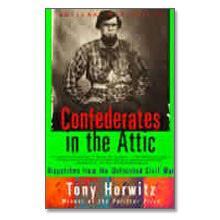So, we read yesterday that the Israeli government has given permission for another thousand settlement homes to be built. And the outside observer might be forgiven for wondering if peaceful coexistence between Israeli and Palestinian can ever be more than wishful thinking.
Or, to put it differently, is it ever possible for one generation, haunted by nurtured histories of enmity and mutual injustices, to choose to create a memory for the next generation that breaks the cycle of hatred, suspicion, provocation and self-justifying violence?
Rabbi Jonathan Sacks, noting the death of the last person to fight on the First World War (I think) once spoke about “when memory becomes history”. His point was basically that once the bearers of memory have died, we are left with history as a commodity to be re-shaped, traded and totemised. When there is no living witness to refute the nonsense, it is left to the ideologues to shape the history narrative in such a way as to justify current preoccupations or priorities.
(As an aside: when clergy move to a new post I encourage them to learn the history of the new parish, but to recognise that people there will speak and act from the memory – the newly-appointed priest might learn the history, but an not share the memory.)
I guess this is on my mind today because I have just finished reading Tony Horwitz's excellent pursuit of the American Civil War, 'The Confederates in the Attic'. Funny it may be, but there is something disturbing about the way we – and not just the people we think are mad – appropriate 'memories' regardless of the accuracy or propriety of doing so. Horwitz illustrates well how the myths about the Civil War are more powerful than the facts or the reality. (You'll have to read the book to see what I mean.)

As always, the language tells its own story. The Civil War is known in the South variously as 'the War of Northern Aggression', 'the Lost Cause' and 'the Recent Unpleasantness'. We write the 'history' in order to create a 'memory' that justifies who and how we behave now – especially in relation to those who (inconveniently) share 'our space'. Closer to (my) home, Protestants and Catholics in Northern Ireland view the Battle of the Boyne in 16XX differently.
Anyway, I am now on to Sylvie Simmons' 2012 biography of Leonard Cohen. And what raises its head at the beginning of Cohen's story in Montreal, Canada? The segregation of French and English in Quebec. However, she does also quote Canadian poet Irving Layton, speaking about Cohen and defining 'genius' in the same way I have previously described a prophet: “the ability – a very rare ability – to see things as they actually are. You are not fooled.” (p.51) If a genius is rarely appreciated in these terms, a prophet is rarely welcome in his/her own home.
There is no escape. This is how tribal human beings are. We don't have to be. We can choose not to be. But, this demands a self-sacrificial decision to prioritise the future over the past and to create a reality that will prove to be a more hopeful and positive 'memory' for those who will inherit the history we are making now.

